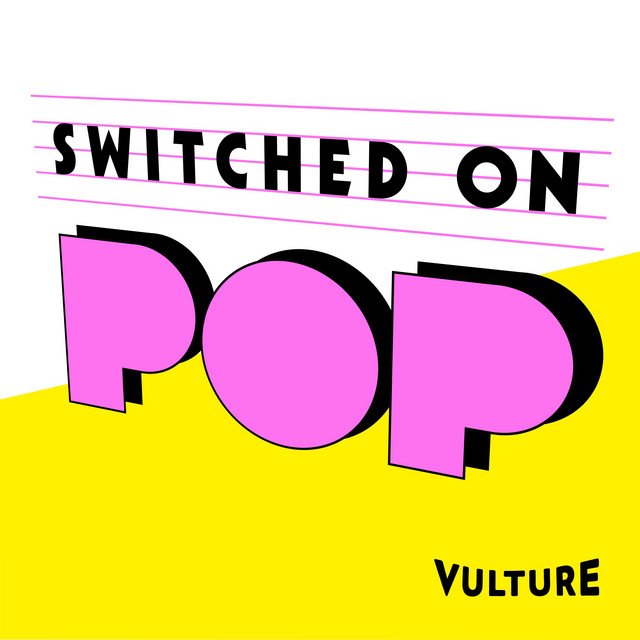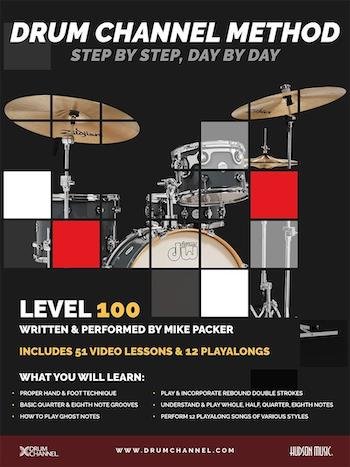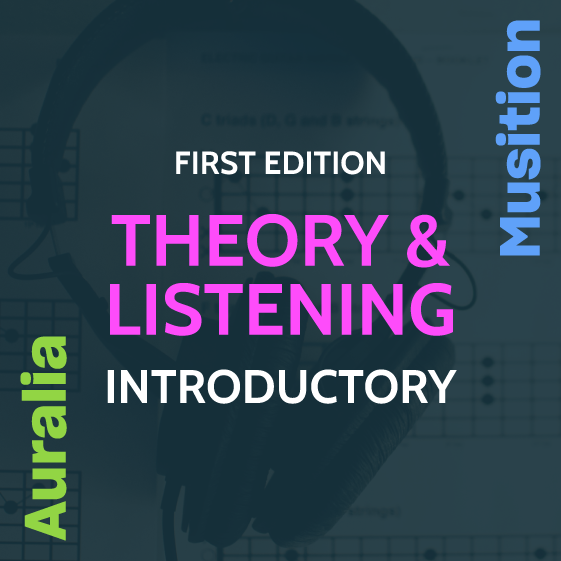
MusicFirst Joins AI For Music
As part of all of the research that I’ve been doing for my AI in the Music Classroom online course - currently being run through the MusicFirst Summer Teacher Academy - I ran across a wonderful initiative called AI For Music, spearheaded by Roland and Universal Music Group. This initiative has created a set of seven core principles that help “establish a guideline for the responsible use of Artificial Intelligence in music. By adopting these principles, companies and organizations commit to protecting the vital contributions of human creativity and to the responsible development and application of artificial intelligence for music creation.” As a company that lives exclusively in the education space, I felt that it was extremely important to support this very important cause. I am thrilled to say that MusicFirst is one of a handful of companies that are official supporters of these principles. I hope that my competitors do the same.

Randy Travis Sings Again - with a little help from AI
With all of the negative attention that AI in music has been getting lately, here’s something that should brighten your day. Country music legend Randy Travis, known for his distinctive baritone voice and numerous hit songs, has been largely absent from the music scene since suffering a stroke back in 2013. The stroke left him with limited vocal abilities, making it all but impossible for him to record new music. That all changed recently when his long-time producer Kyle Lehning and Cris Lacy from Warner Music Nashville approached Randy and his wife Mary to try to use AI technology to recreate his voice on a new song.

A Reckoning for AI Music Tools?
Yesterday the Recording Industry Association of America (RIAA), in conjunction with labels including Sony Music Entertainment, Universal Music Group Recordings and Warner Records, filed a MASSIVE lawsuit against two of the most well known (and best) AI-assisted music tools - Udio and Suno - something that I believe we’ll be seeing more and more as the music industry tries to figure out what to do with all of the tools that have been trained on copyright-protected music. The lawsuit claims Suno and Udio’s software listens to, analyzes and copies music to create similar works and asked for compensation of $150,000 PER WORK. As I have been writing about for months now, the music industry is at a crossroads with AI, and this recent legal action by the RIAA alleges copyright infringement on a massive scale. This case has significant implications for music technology and the future of creative tools in the industry. Suno’s CEO said the technology was “designed to generate completely new outputs, not to memorize and regurgitate pre-existing content” and doesn’t allow users to reference specific artists. Suno says that they have tried to explain this to labels “but instead of entertaining a good faith discussion, they’ve reverted to their old lawyer-led playbook”. My gut tells me that the end result of this lawsuit is a revenue sharing scheme that will pay royalties to artists for every song generated. How they’ll figure out how to do that, I have no idea - I’ll leave that to the lawyers.

Move Over ChatGPT - Here Comes Claude
This past weekend I learned about another AI tool from a colleague at work. This one is called Claude and it is similar in many ways to the other AI tools out there like ChatGPT, Gemini and Copilot. Claude is an advanced AI tool that is created by Anthropic, and it has three versions: Claude 1, Claude 2, and Claude 3.5 Sonnet, which is what I decided to experiment with over the weekend. What sets Claude 3.5 apart from other language models is its comprehensive knowledge base (that isn’t connected to the Internet - yet)., spanning a wide range of topics - including music - and it’s focus on ethics, safety and transparency which is pretty refreshing. Before I entered my first prompt, it gave me the following warning:

Celebrate Make Music Day 2024
Make Music Day is a worldwide celebration, occurring annually on June 21st. It underscores the universal language of music, encouraging everyone to engage and participate in musical activities. The origins of the “Fête De La Musique” trace back to France, 42 years ago. Jack Lang and his team at the Ministry of Culture envisioned a new type of musical celebration. They pictured a day filled with free music in every conceivable public space—street corners, parks, rooftops, gardens, and storefronts. Seventeen years ago, the spirit of Fête de la Musique traveled across the Atlantic to inspire the first Make Music event in New York. The event has since grown and spread well beyond New York, with cities across the United States embracing the celebration each year on June 21 with thousands of musicians—ranging from amateurs to seasoned professionals and spanning all genres—delivering almost 5,000 free outdoor concerts across the United States. To better coordinate and enhance these widespread efforts, in 2014, Make Music organizers from across North America came together to establish the Make Music Alliance. This organization aims to nurture and expand the reach of Make Music Day across the continent. Here’s a guide to some invaluable tools and platforms for music educators planning to celebrate Make Music Day.

AI, Music & Copyright: What’s the Story?
When it comes to the endless images, text and music that is being created by the many generative AI tools that are out there, what does it all mean for copyright? There are SO many facets to this question, including what about copyright protection for the works that the AI algorithms were trained on, is AI-generated content copyrightable? If not, how much human input should be required to make it eligible for copyright protection? If you create a new piece of music with the assistance of AI, who gets the copyright - you? The software company that created the AI tool? The artist(s) that the AI tool used to train itself? Recently, the US Copyright Office has issued some guidance on this topic - as they are feverishly trying to draw up new copyright legislation that will address these questions as well as many more that will come up as generative AI improves and evolves.

The Ethics of AI
For the past 3 weeks I have been teaching an online course for MusicFirst titled AI in the Music Classroom. Running a music tech company is a full-time gig but I am thoroughly enjoying teaching this course, not only for the meaningful interactions that I’ve been having with the students enrolled in the class, but also the deep prep work that I’ve been doing each week. I truly believe that the only way to be a good teacher is to throw yourself in the deep end and do LOTS of preparation before each class. As part of that work, one of the aspects of AI that we looked at last night was the ethical considerations and issues that go hand in hand with AI - specifically Generative AI. While the focus of the class last night was the impact that AI is having on the music industry, the portion of the class dedicated to the ethics of AI seemed to resonate the most with my students. Here is an overview of that discussion.

Lesson Plan: The Star Spangled Banner
As June 14th is Flag Day here in the United States, I thought it would be fun to share a lesson plan that I wrote that focuses on the American national anthem, the Star Spangled Banner. The lesson focuses on the artistic interpretation of the anthem and asks students to watch two performances of the Star Spangled Banner and then compare and contrast those performances. It’s a simple activity that can be done at almost any grade level. I hope that you can use it today in your classrooms!

Resource: Toby Rush Music Theory
When I woke up this morning, I knew that I needed to write a blog post, and was running through resources that I LOVE that I might not have shared in my head. One of my all-time favorites is titled Music Theory for Musicians and Normal People - created by Toby Rush, an Assistant Professor of Music Theory and Technology at the University of Dayton in Dayton, Ohio, where he teaches music theory, aural skills, music technology and composition. He also happens to be a GIFTED programmer and graphic designer and the FREE resources that he posts on his site are amazing. If you teach music in middle school, high school or college/university, I highly recommend bookmarking this site right now (if you haven’t already) and start printing out and laminating his materials to either decorate your classroom or hand out to your students.

APME 2024 Recap
I’m currently flying at 35,000 ft on my way from LAX to Mishawaka, IN for the Conn-Selmer Institute Midwest Conference after spending the last 4 days with some incredible music educators at the 2024 APME Conference on the campus of USC in Los Angeles titled Come Together: Considering the Past, Present, and Future of Popular Music Education on behalf of MusicFirst. As I have about 4 hours in the air this morning, I thought I would write down my thoughts about this conference for those of you who have either never attended, or those who know just how great an event this is.

Resource: Switched on Pop
I’m out here at the APME Conference on the campus of USC in Los Angeles this week. It’s been a great few days and I will be writing up a recap tomorrow, but I felt compelled to highlight one of the many excellent sessions and keynotes at this conference. Yesterday I had the absolute pleasure of attending a keynote address by Nate Sloan - a cohost of one of the best podcasts on pop music there is - Switched On Pop. This podcast has been around for over 10 years and has well over 350 episodes. The keynote address was amazing - a very rare combination of academia, analysis, music and humor. Nate is a gifted educator and speaker and I enjoyed every second of his talk. If you’ve never heard of Switched On Pop - the following is a review of what it is, why it is SO good, and why you might consider integrating it into your music instruction - especially if you’re looking for high quality resources that focus on popular music.

Introducing the Drum Channel Method
As part of the MusicFirst Classroom Modern Band Bundle that is scheduled to launch on August 1st, I thought it would be fun to share some of the amazing new resources that will be included as they come online. When we were building this offering, we wanted to make sure that we had the highest quality resources for all of the instruments that you might find in a “modern band”. The heart and soul of any band is the rhythm section, and perhaps most importantly, the drum set. We commissioned Mike Packer to license us his incredible drum set method - Drum Channel Method - Step By Step. Day By Day - which is now live in the MusicFirst Classroom Content Library in the new Modern Band section. The following is a quick overview of what you’ll find and how it can be used to supercharge your rhythm section.

Music Theory & Ear Training Just Got SO Much Easier
If you are a MusicFirst Classroom subscriber and also have access to AuraliaFirst & MusitionFirst then I think you’re going to LOVE what our content team has just launched in conjunction with the amazing folks at Rising Software. If you’re NOT currently a subscriber, then please sign up for a FREE 30-day trial to see what we have put together for music teachers who are interested in teaching their music students about the fundamentals of music. We've just updated our Auralia and Musition service with 200+ pre-linked tasks to our 'First' quizzes and worksheets, making them easier to use and saving you loads of time!

Dead & Company at The Sphere
For the past 4 days, I have been out in Las Vegas to attend 3 nights of Dead & Company’s residency at The Sphere titled Dead Forever. My flight home is delayed, so I thought I would write down some thoughts while they are still fresh in my mind. As a LONG time Deadhead, I was really looking forward to experiencing this music in this amazing new venue. I splurged for the 3-night VIP pass and sat in Section 108. Without a doubt, this set of 3 shows was the BEST live concert experience I have ever had (and I’ve been to HUNDREDS of shows). The venue elevates the concert experience into a whole new level. What follows is my quick review.

Resource: Institute for Composer Diversity
At the CSI Southeast event in Atlanta last month, I had the pleasure of sitting in on a session delivered by Dr. David Eccles titled The Inclusive Orchestra: Strategies for Identifying and Programming Great Music of Composers from Underrepresented Voices. The focus of the session was on how string teachers could find and program literature from underrepresented populations of composers. Eccles reflected on his own musical upbringing and the predominance of white male composers as the only music that is often performed by string orchestras. While that is changing more and more recently, it needs to be something that music educators consider when they are programming - especially when the student population that sits in front of the teacher is also becoming more diverse. One of the many resources that Dr. Eccles showed the attendees was the Institute for Compose Diversity. It is a perfect way to search for and program music from a diverse population of composers.

Resource: Song Exploder
Recently, my friend Dan Massoth reached out to me to ask if I had heard of a wonderful podcast called Song Exploder. It reminded me of what a fabulous resource it might be for any music educator who incorporates popular music into their curriculum. The podcast is hosted by Hrishekesh Hirway and is absolutely wonderful. Song Exploder is a podcast where musicians take apart their songs, and piece by piece, tell the story of how they were made. Each episode is produced and edited by host and creator Hrishikesh Hirway in Los Angeles. Using the individual stems from each recording that is featured on the podcast, Hirway asks artists to discuss the various songwriting decisions that went into creating their work. His guests cover a WIDE variety of genres, including The Flaming Lips, Green Day, Billie Eilish, U2, Metallica, Laufey, Lorde, Natalie Merchant, The Roots, Noah Kahan, and more. Here’s the full list of episodes.

The Most Important Video about AI in the Music Industry
Late last week, my good friend and colleague, Robin Hodson, sent me a link to a video that features a conversation between Ted Gioia and Rick Beato on the impact of AI on the music industry. Normally I look to see how long the video is before deciding to watch it, and at just over 90 minutes, I waited until this past Sunday to watch it. All I have to say is that ANYONE interested in the impact of AI on the music industry - not really anything to do with music education but the much larger music industry - stop what you are doing and watch this video now. Rich Beato is one of my favorite music-related YouTubers, and this interview with futurist and author Ted Gioia is the clearest explanation that I have heard about how AI is effecting music creators, record labels, streaming platforms, and consumers. It is simply must see TV.

Introducing the MusicFirst Modern Band Solution
I am SO incredibly proud to announce that over the past year we have been putting together something truly special - our brand new Modern Band Bundle. This new offering, exclusively from MusicFirst, provides everything a music teacher might need to either start up a modern band program at their school OR an existing modern band program. Beginning this August, we will offer this new bundle which includes incredible new content and resources, from some of the BEST partners in the industry, including School of Rock, Music Will, the Drum Channel and so much more! In addition to these existing resources, we have hired some of the most forward-thinking music educators in the space to write new courses and content - including Dr. Steve Holley, Steve Giddings, Dr. Ethan Hein, and Mike Packer. In addition, we will offer a BUNCH of resources from Music Will - the organization formerly known as Little Kids Rock. Music Will is the premiere organization in the popular music education space, and we are very excited to be partnering with them. We will also be adding some new sites to our Resource tab, including Teach Rock, Ultimate Guitar, as well as InTune Monthly, YouDJ, Shed The Music, MusicEDU, and more!

Join Me at the NAfME Town Hall on AI
I was recently asked to become a member of the NAfME Task Force on AI in Music Education. I am truly honored to serve on this new committee with some of the brightest minds in music education and technology. The goal of the committee is to provide resources and guidance on how music educators should address the fast growing integration of AI powered tools in schools around the world. The task force is looking closely at the latest advancements in Artificial Intelligence (AI), and the potential to significantly transform the landscape of music education. As new technology becomes integrated into school systems, it’s important for educators to understand the potential impact for their students and their classrooms. NAfME will continue monitoring developments in AI technology and provide our members with the latest information on AI policy, regulation, and its application for teaching and creating music. NAfME has issued a SURVEY for members to take that covers a wide variety of topics, concerns, and considerations.

ICYMI: Sight Reading Factory adds Assessment
I’ve been on vacation this past week, and a LOT has happened while I’ve been gone. The first HUGE news that was announced was from one of MusicFirst’s partners - Sight Reading Factory. Founder and CEO Don Crafton, took to Facebook Live this past Thursday night to announce that the most beloved sight reading tool available has added the single most requested feature by teachers - ASSESSMENT! For the past 10 years, SRF has cranked out amazing sight reading materials for individual musicians and ensembles using their unique AI composition algorithm that allows teachers to create highly customized sight reading examples for their students. The one thing that it has been missing is the ability to assess the results of the students efforts. There’s a long story behind why, but all of that is behind us now. Teachers can finally assign their students unlimited sight reading examples, and SRF will auto grade their results. Hallelujah!